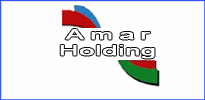Senegal : Government
Senegal Government Profile 2012
Multiparty democractic republic.
In Senegal, the president is elected by universal suffrage. A two-chamber parliamentary system has been in force since 2007 with a 150-member national assembly and a 100-member senate largely dominated by President Abdoulaye Wade’s party, the Senegalese Democratic Party (PDS). The opposition, grouped under the name ‘Bennoo Siggil Senegaal’ (Wolof for ‘United to Boost Senegal’), held a national conference from June 2008 to May 2009 intended to diagnose the country’s difficulties and propose solutions. Chaired by Amadou Moctar Mbow, former Director General of UNESCO, the conference resulted in a Charter of Democratic Governance addressed to the country’s political authorities.
The government suffered a setback in the March 2009 local elections, in which President Wade had become personally involved. The opposition won the vote in the country’s large cities such as Dakar, Thiès, Saint-Louis, Kaolack and Fatick.
Otherwise, the crisis in Casamance has not been solved. December 2009 was a deadly month in this region, with a soldier’s death followed by that of a teacher of the Sedhiou inspectorate. President Wade, who had promised to settle this conflict in his first 100 days of government, seems currently overwhelmed by the turn of events. The peace process is blocked by the absence of a credible representative of the Movement of Democratic Forces in Casamance (MFDC) since the death in 2007 of its historic leader, Father Augustin Senghor.
republic
14 regions (regions, singular - region); Dakar, Diourbel, Fatick, Kaffrine, Kaolack, Kedougou, Kolda, Louga, Matam, Saint-Louis, Sedhiou, Tambacounda, Thies, Ziguinchor
4 April 1960 (from France)
Independence Day, 4 April (1960)
adopted 7 January 2001
based on French civil law system; judicial review of legislative acts in Constitutional Court; the Council of State audits the government's accounting office; accepts compulsory ICJ jurisdiction with reservations
18 years of age; universal
bicameral Parliament consisting of the Senate, reinstituted in 2007, (100 seats; 35 indirectly elected with the remaining 65 members to be appointed by the president) and the National Assembly or Assemblee Nationale (150 seats; 90 members elected by direct popular vote with the remaining members elected by proportional representation from party lists to serve five-year terms) elections: Senate - last held 19 August 2007 (next to be held - NA); National Assembly - last held on 3 June 2007 (next to be held 2012); note - the National Assembly in December 2005 voted to postpone legislative elections originally scheduled for 2006; legislative elections were first rescheduled to coincide with the 25 February 2007 presidential elections and later rescheduled for 3 June 2007; the June election was boycotted by 12 opposition parties, including the former ruling Socialist Party, which resulted in a record-low 35% voter turnout election results: Senate results - percent of vote by party - NA; seats by party - PDS 34, AJ/PADS 1, 65 appointed by the president; National Assembly results - percent of vote by party - NA; seats by party - SOPI Coalition 131, other 19
Constitutional Court; Council of State; Court of Final Appeals or Cour de Cassation; Court of Appeals
African Party of Independence [Majhemout DIOP]; Alliance for the Republic-Yakaar [Macky Sall]; And-Jef/African Party for Democracy and Socialism or AJ/PADS [Landing SAVANE]; Alliance of Forces of Progress or AFP [Moustapha NIASSE]; Democratic League-Labor Party Movement or LD-MPT [Dr. Abdoulaye BATHILY]; Front for Socialism and Democracy/Benno Jubel or FSD/BJ [Cheikh Abdoulaye Bamba DIEYE]; Gainde Centrist Bloc or BGC [Jean-Paul DIAS]; Independence and Labor Party or PIT [Amath DANSOKHO]; Jef-Jel [Talla SYLLA]; National Democratic Rally or RND [Madior DIOUF]; People's Labor Party or PTP [El Hadji DIOUF]; Reform Party or PR [Abdourahim AGNE]; Rewmi Party [Idrissa Seck]; Senegalese Democratic Party or PDS [Abdoulaye WADE]; Socialist Party or PS [Ousmane Tanor DIENG]; SOPI Coalition [Abdoulaye WADE] (a coalition led by the PDS); Union for Democratic Renewal or URD [Djibo Leyti KA]
other: labor; students; Sufi brotherhoods, including the Mourides and Tidjanes; teachers
ACP, AfDB, AU, CPLP (associate), ECOWAS, FAO, FZ, G-15, G-77, IAEA, IBRD, ICAO, ICC, ICCt, ICRM, IDA, IDB, IFAD, IFC, IFRCS, ILO, IMF, IMO, IMSO, Interpol, IOC, IOM, IPU, ISO (correspondent), ITSO, ITU, ITUC, MIGA, MINURCAT, MONUC, NAM, OIC, OIF, OPCW, PCA, UN, UNAMID, UNCTAD, UNESCO, UNIDO, Union Latina, UNMIL, UNOCI, UNWTO, UPU, WADB (regional), WAEMU, WCL, WCO, WFTU, WHO, WIPO, WMO, WTO
three equal vertical bands of green (hoist side), yellow, and red with a small green five-pointed star centered in the yellow band; uses the popular pan-African colors of Ethiopia





























